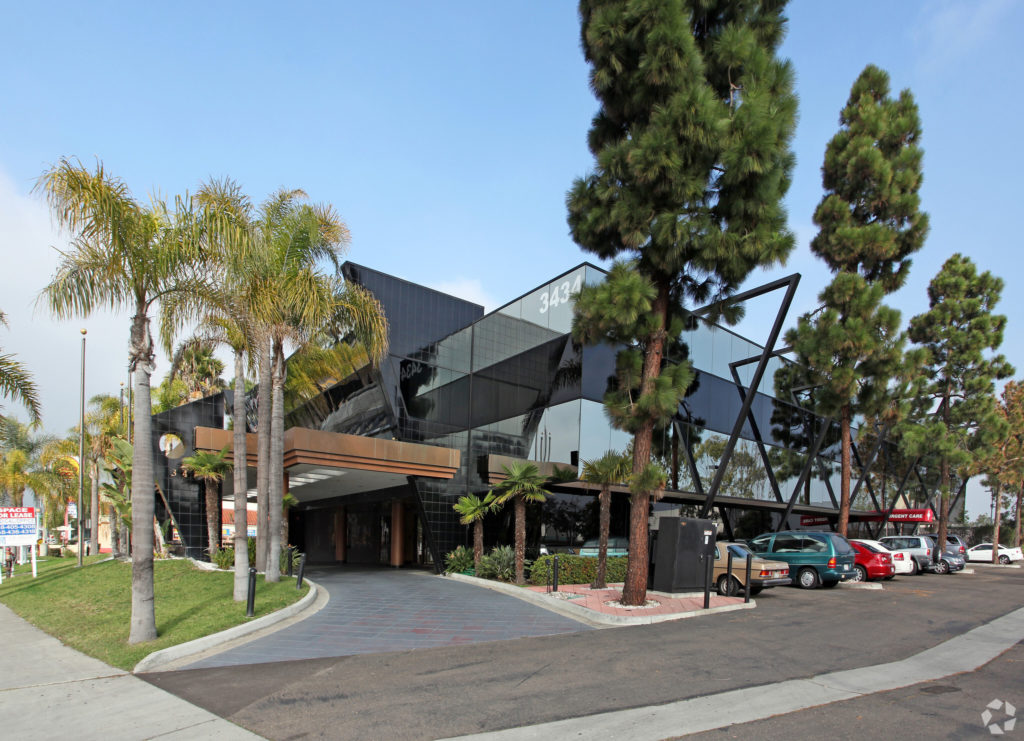Daily Business Report-May 6, 2020
The new training academy for coronavirus detectives launches today. (Image via iStock)
California readies army of coronavirus detectives
Universities to train thousands of state workers to trace
the spread of the virus amid plans to re-open the state
by Rachel Becker | CalMatters
The Newsom administration has teamed with two universities to train more than 3,000 employees per week to become coronavirus detectives tracing the spread of the disease throughout California.
Starting today, the University of California, Los Angeles and the University of California, San Francisco will provide 20 hours of online and in-person training to state employees selected for the program.
The new “training academy,” as Gov. Gavin Newsom called it, is part of an effort to build an army of 20,000 people to test, trace and isolate people who may have been infected.
In addition, a new statewide database will help local health departments trace infected people and their contacts as they travel through the state.
“I’m very excited about that innovation,” said Madera County public health director Sara Bosse. “It is something that we have needed for a decade in California, because we often have cases in which contacts cross counties for any disease.”
The process of tracking the virus as it spreads from person to person is called contact tracing. And experts agree that it is critical to quashing new outbreaks of the novel coronavirus before they start — particularly as efforts to reopen the state provide more opportunities for infection.
“As people move more, we increase the risk for people to get sick,” Sonia Angell, California Department of Public Health director and State Health Officer, said in a live stream. “If people get sick, we want to identify those individuals very early, and then make sure that all of their contacts are also identified.”
Right now, 23 of California’s 61 local health departments are actively tracking exposed contacts as the coronavirus spreads from person to person, according to Newsom. Nearly 3,000 investigators interview people who test positive, identify the people they’ve interacted with and notify them that they need to isolate or quarantine.
But the National Association of County and City Health Officials estimate that the nation will need 30 contact tracers for every 100,000 Americans to handle the pandemic. Which means that California’s 2,845 contact tracers fall far short of the 12,000 needed to track the virus through California’s population of nearly 40 million.
To that end, Newsom announced plans to redeploy state employees with “the right kind of background cultural sensitivity, cultural competency, different language skills, a health mindset.”
Madera County’s Bosse said she hasn’t yet seen the training modules. But she said that training resources have been a real need across the state, although her county has adjusted.
“Our contact-tracing resources, as you know, on a regular day, are quite small,” Bosse said — which means few people are generally available to help with training. “At this point, we now have a collection of folks that have significant skills and could easily do shadowing and on-the-job training.”
The new online training program could help standardize contact-tracing state-wide, she said. “It’s comforting to know that people would at least have a similar approach.”
Newsom and Angell did not say how they would provide in-person instruction, given public health recommendations for physical distancing.
They also did not say when the new contact tracers would be deployed. But when they are, local health authorities can request staffing help from the state, according to Angell.
The new contact-tracing platform the state announced today will sync up with California’s existing digital disease surveillance platform, and contact tracers can use it to check in on people’s symptoms through texts, chat, emails, and phone automation, according to Angell. Angell emphasized that the database will focus on health information and will be kept confidential.
Bosse hopes the new digital database will help streamline contact-tracing for cases and contacts that cross county borders.
Still, there’s one major caveat to the state’s efforts to bolster contact-tracing, she said: people must be willing to cooperate, particularly if cooperating means missing work and wages — and potentially putting friends, family, and coworkers out of work for two weeks, too.
“With so many people who are unemployed or underemployed at this point, once they have the ability to be employed, are they going to be willing to be tested?” Bosse asks.
“Wage replacement, so ability to be paid sick leave, is going to be super important — or people are not going to agree to be tested, and then our contact tracing efforts will be really limited.”
______________________________

UC San Diego team takes top prize
in NAIOP’s 10th annual University Challenge
A student team from UC San Diego Department of Urban Studies and Planning submitted the winning development plan at NAIOP San Diego’s 10th annual University Challenge held April 23 in a virtual format due to COVID-19 social distancing precautions.
The participating schools, which also included San Diego State University’s Corky McMillin Center for Real Estate and University of San Diego’s Burnham Moores Center for Real Estate, assembled a team of up to six students to take part in the Challenge to create a development plan to compete as the highest and best use for the proposed site. Each team presented separately before a panel of industry judges via Zoom, and then again, simultaneously, in front of a live Zoom audience after NAIOP pivoted within weeks to shift from a live to virtual event.
The UC San Diego student team, comprised of Sable Beltran, Chris Giammanco, Xinyi Huang, Erik Mumm, Dominic Sistena and Kacie Ting, presented their development plan for a mixed-use, 20.5-acre development site in the Morena Corridor located in Tecolote Village near Tecolote Road Trolley Station.
The $630 million winning plan, called “Adante at the Bay,” proposed a symphony of arts, culture and technology, including four different residential models, an office center with lab space, a central retail-oriented promenade and a self-storage facility aimed toward artists and artisans. The plan also incorporates a central music venue, acres of green space interwoven with public art and wide, walkable sidewalks, keeping with the inspiration to create a destination that promotes a balanced and healthy lifestyle.
NAIOP is the National Association of Industrial and Office Properties.
______________________________
Cal State San Marcos to hold virtual
Memorial Day observance
Cal State San Marcos will honor our nation’s fallen with a virtual Memorial Day Observance today.
Veterans Services has been holding Rendèzoom events for military-connected students every Thursday since CSUSM moved to virtual instruction in March. The one-hour lunchtime Zoom sessions provide an opportunity for student veterans to ask questions or simply catch up with friends and colleagues.
In collaboration with ASI and the Black Student Center, Veterans Services is hosting the May 7 Rendèzoom event in honor of the university’s annual Memorial Day Observance. A moment of silence will be observed at 12:10 p.m. in memory of military personnel who died in service to the United States.
CSUSM students, faculty and staff are invited to join the Rendèzoom call at noon at this link.
CSUSM is home to more than 470 student veterans, the highest percentage per capita of any California State University campus. The university also serves more than 1,700 military-connected students, which is 11 percent of the campus population.
______________________________

Richley Medical Plaza on Midway Drive
sold to Orange County group for $6 million
Richley Medical Plaza at 3434 Midway Drive in the Midway District has been sold to an Orange County-based pain management group for $6 million. A private investor was the seller.
The 25,600 square-foot, two-story building was originally built in 1991. The property includes a 6,475-square-foot surgery center that features three operating rooms, recovery area, waiting room, reception and two restrooms. The building was approximately 85 percent vacant at the time of sale and features 65 parking spaces.
CBRE’s Dan Henry and Lars Eisenhauer represented the seller in the transaction. The buyer was represented by an outside firm.
______________________________

Sorrento Mesa property acquired for
$5.3 million by biotech business
Oberlin Realty LLC has purchased a 21,278-square-foot office building in Sorrento Mesa for $5.3 million. The seller was Pangea Properties LLC. Oberlin plans to occupy the entire building, which it will use for its biotech business.
Located at 10179 Huennekens St., the two-story property sits on a prominent corner location directly off Mira Mesa Boulevard.
Brant Aberg and Ryan Downing with Cushman & Wakefield San Diego represented the seller in the transaction.
______________________________
San Diego Opera awarded $77,000
in grants from California Arts Council
The California Arts Council has awarded San Diego Opera four grants totaling $77,000 which will help support the company’s extensive education programs. These funds will be applied to the company’s 2021 Fiscal Year.
A new $20,000 grant will enable the company to develop an Artist Residency Program in the City Heights and San Ysidro communities. For this program, San Diego Opera will partner with Casa Familiar, in San Ysidro, and Lead Artist Humberto Borboa on an artist residency in the two San Diego communities.
Two grants, each for $19,000, will support the company’s long running Words and Music (WAM) program at three sites in the community. The first grant is for the summer and after-school WAM program at La Maestra Center for Youth Advancement in City Heights. The second grant will support WAM at Lincoln High School and Memorial Preparatory for Scholars and Athletes, serving students at one Title I middle school and one Title I high school in historically underserved areas of San Diego.
The final grant of $19,000 is to support the Company’s Student Night at the Opera program. Student Night at the Opera provides students and their chaperones access to the final dress performance of our mainstage productions. The program includes free tickets to the opera and the Company reimburses busing from Title I schools. their experience at the opera.
______________________________
2020 Pulitzer Prize winners announced
The 2020 Pulitzer Prize winners in 15 Journalism and seven Book, Drama and Music categories have been announced.


